Celebrating Your Journey: Embracing Lifelong Sobriety

Recovery is a profound journey marked by numerous milestones that reflect personal growth, resilience, and transformation. Celebrating these achievements in healthy, substance-free ways not only reinforces positive behaviors but also strengthens motivation and self-esteem. This article explores meaningful strategies and activities to honor your progress, highlighting how celebrating milestones can serve as a vital component of sustained sobriety and overall well-being.
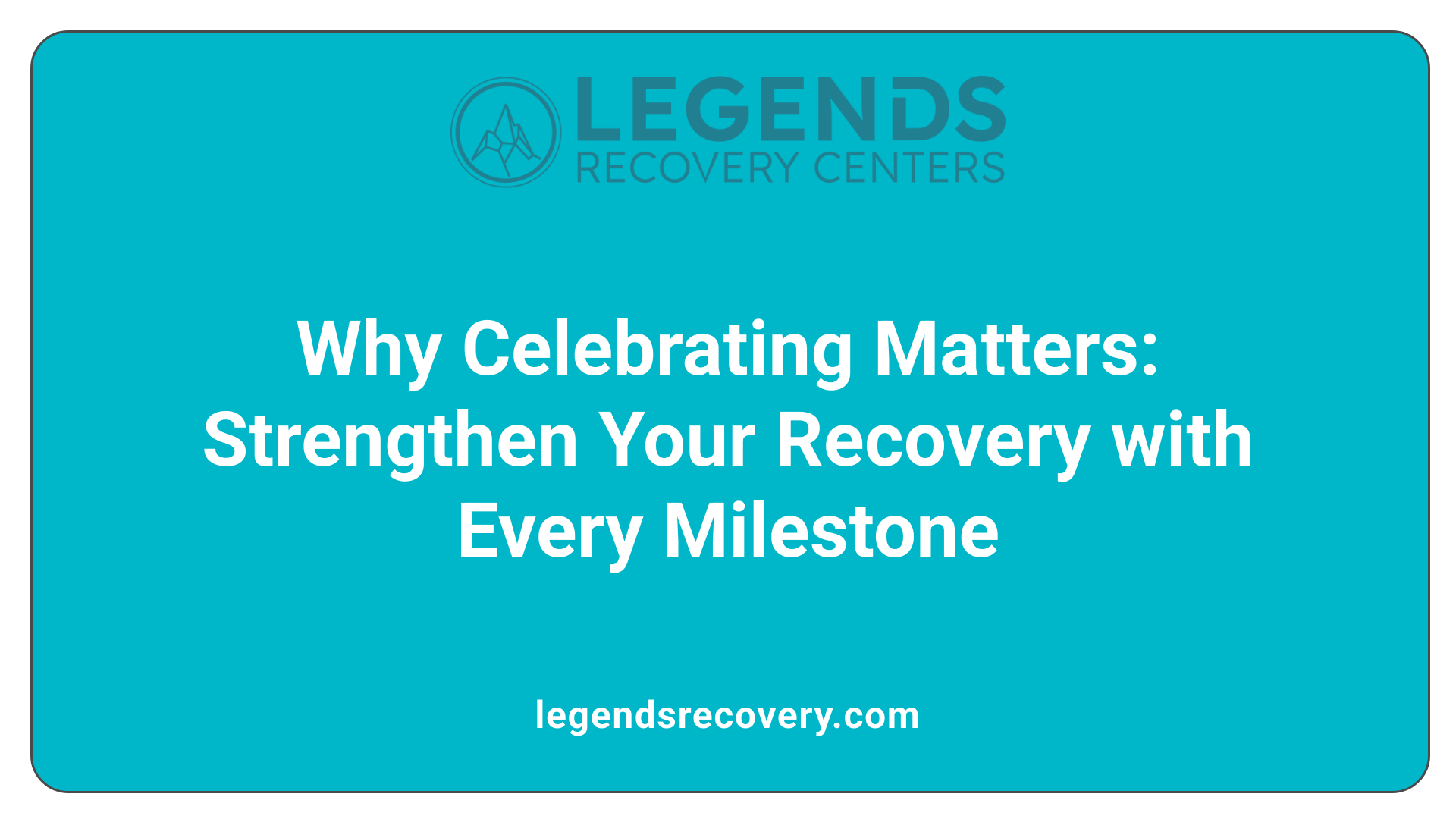
Celebrating milestones in addiction recovery plays a crucial role in reinforcing positive behavior and marking progress. When individuals recognize their sobriety achievements—whether it's their first 24 hours or their multi-year milestone—they gather tangible proof of their capacity to change. These celebrations boost confidence and self-esteem, helping individuals feel proud of their efforts and setbacks alike.
Such acknowledgment also fosters resilience, providing motivation to face ongoing challenges. Celebrations deepen social bonds when shared with loved ones, support groups, or community members, creating an encouraging environment that affirms commitment. They offer reflective moments for individuals to appreciate their growth, revisit their reasons for sobriety, and set future goals. Overall, celebrating recovery milestones is vital for maintaining enthusiasm and reducing the risk of relapse, supporting long-term health and happiness.
Engaging in activities to celebrate recovery milestones replaces old habits with healthier alternatives, such as pampering oneself with a spa day, planning nature retreats, or developing new skills. These activities promote feelings of happiness and accomplishment, releasing dopamine—the brain's reward chemical—which helps reinforce the desire to stay sober.
Recognizing progress through ceremonies, gifts, or personal traditions builds a positive feedback loop. It reminds individuals of their strength and capability, encouraging continual self-care and personal development. Private moments like journaling or reflective letters, along with public expressions at support groups or social events, serve as affirmations of achievement.
Furthermore, shared celebrations inspire and motivate others still on their recovery journey, cultivating a supportive community atmosphere that emphasizes hope and perseverance.
Acknowledge milestones in recovery fosters a wide range of emotional and mental health benefits. It enhances feelings of self-worth and reduces guilt or shame associated with past substance use. Celebrating achievements helps individuals recognize their resilience and inner strength, which can improve mental health and overall well-being.
Reflecting on progress during milestone celebrations can increase hope and optimism. It provides clarity about personal growth, emotional management, and life improvements, reinforcing a positive outlook toward the future.
Moreover, these acknowledgments encourage ongoing self-reflection and gratitude, important practices for sustaining recovery. Techniques like creating vision boards or writing heartfelt letters serve as tools for visualizing future goals and commemorating the journey, embedding resilience and purpose into everyday life.
| Milestone Types | Celebration Activities | Additional Benefits |
|---|---|---|
| Time-based (e.g., 30 days, 1 year) | Sharing with loved ones, special trips, ceremonies | Boosts confidence, sense of accomplishment |
| Personal goals (e.g., new job, relationship) | Treating oneself, creating traditions | Enhances motivation and self-esteem |
| Emotional growth | Journaling, support groups, therapy | Promotes self-awareness, emotional stability |
| Physical health | Exercise, fitness achievements | Physical revitalization, increased energy |
Celebrating milestones, whether quietly or publicly, serves as a foundation for ongoing recovery. It enhances mental strength, nurtures hope, and affirms the individual's ability to lead a fulfilling, substance-free life.
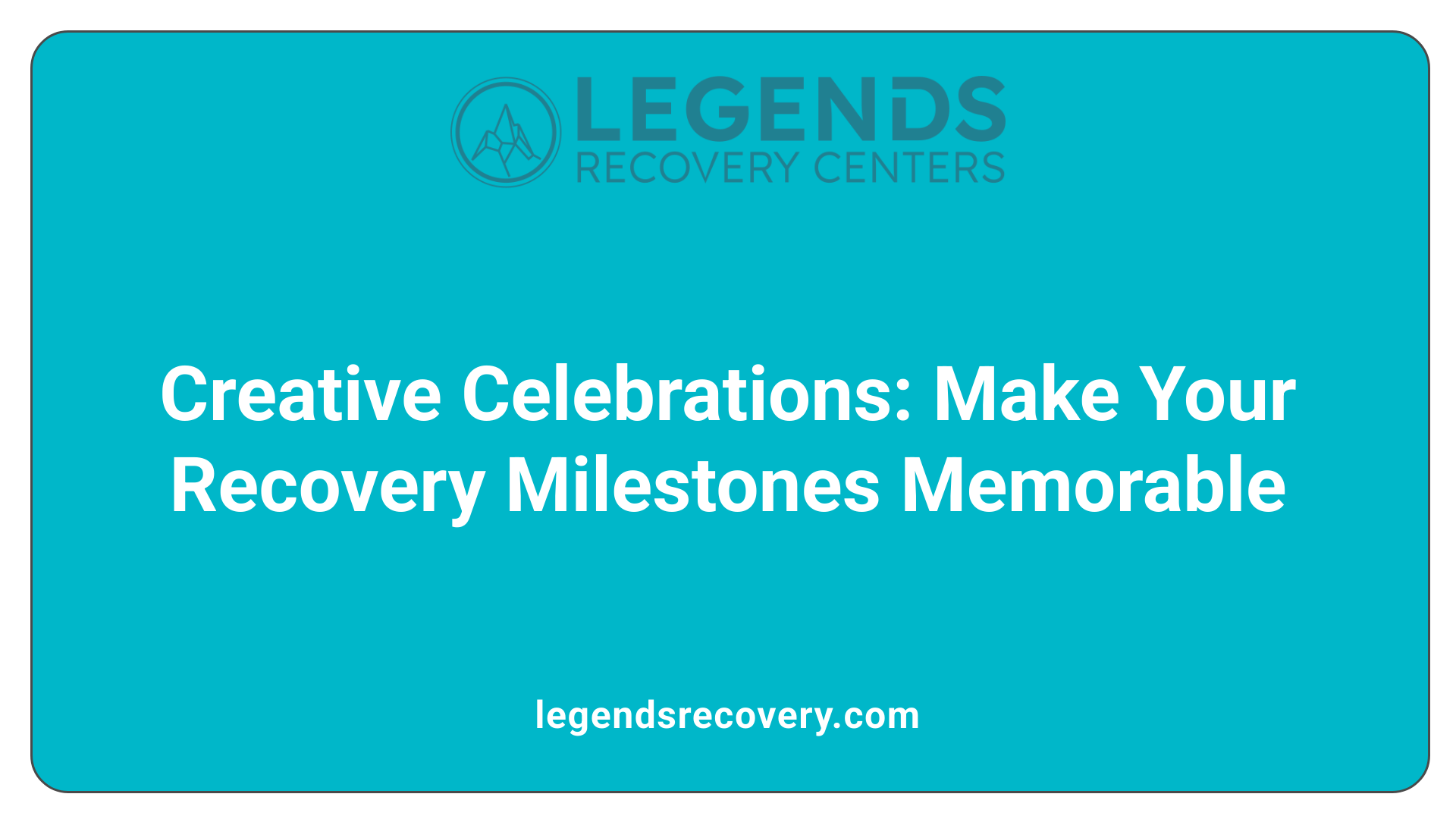
Celebrating recovery milestones without substances opens the door to numerous fulfilling activities. Many individuals choose to host sober parties featuring delicious food, music, and themed decorations that honor their progress. Nature outings, such as hikes, picnics, or camping trips, can evoke a sense of peace and accomplishment. Creative pursuits like art projects, music sessions, or writing can serve as outlets for self-expression and reflection.
Personal rewards are also effective. Spa days, massages, or taking up new hobbies like cooking, dancing, or gardening can reinforce positive changes. Keeping a recovery journal is another meaningful way to document milestones, helping to visualize growth and steer motivation.
Overall, integrating activities that focus on self-care, mindfulness, and personal interests ensures celebrations support mental and physical well-being—crucial components of sustainable sobriety.
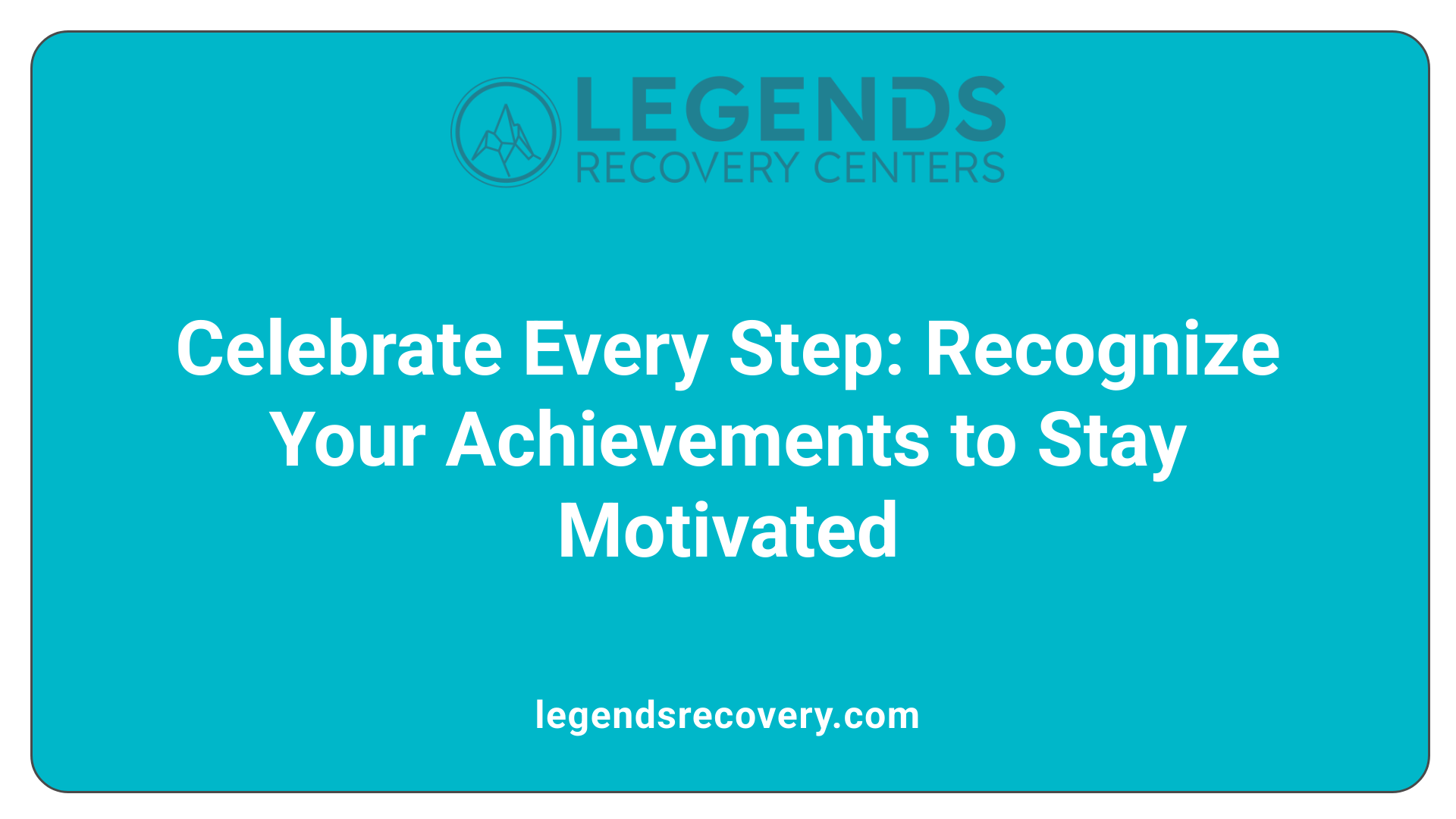
Acknowledging and rewarding personal progress is vital for maintaining motivation on the journey to sobriety. Celebrations serve as positive reinforcement, helping individuals focus on their achievements and strengthen their commitment.
Milestones such as reaching 24 hours, one week, one month, or even multiple years sober are common markers of progress that deserve recognition. Celebrating these time-based achievements can include sharing with supportive loved ones, treating oneself to a special activity, or participating in community events that honor sobriety.
Personal achievements like repairing relationships, setting new goals, or overcoming fears also mark significant progress. Engaging in activities such as writing heartfelt letters, creating personal rituals, or earning sobriety tokens during support group meetings can affirm these milestones.
Health improvements, both physical and emotional, are equally important. Activities like enjoying a spa day, initiating a new exercise routine, or practicing mindfulness and self-care help reinforce the benefits of sobriety.
To keep motivation high, many find it helpful to develop new traditions for each milestone. These might include hosting sober parties, planning trips, or building recovery vision boards. Journaling reflections on progress and future aspirations also offers a meaningful way to recognize advancement.
Celebrating achievements not only boosts confidence but also cultivates resilience. It reminds individuals of their strength, encourages continued effort, and builds a supportive community network.
In summary, acknowledging each step—big or small—through personal rituals and celebrations nurtures hope, self-esteem, and a positive outlook, which are all crucial for long-term success in recovery. Creating meaningful ways to recognize these milestones fuels ongoing motivation and highlights the importance of every accomplishment along the way.
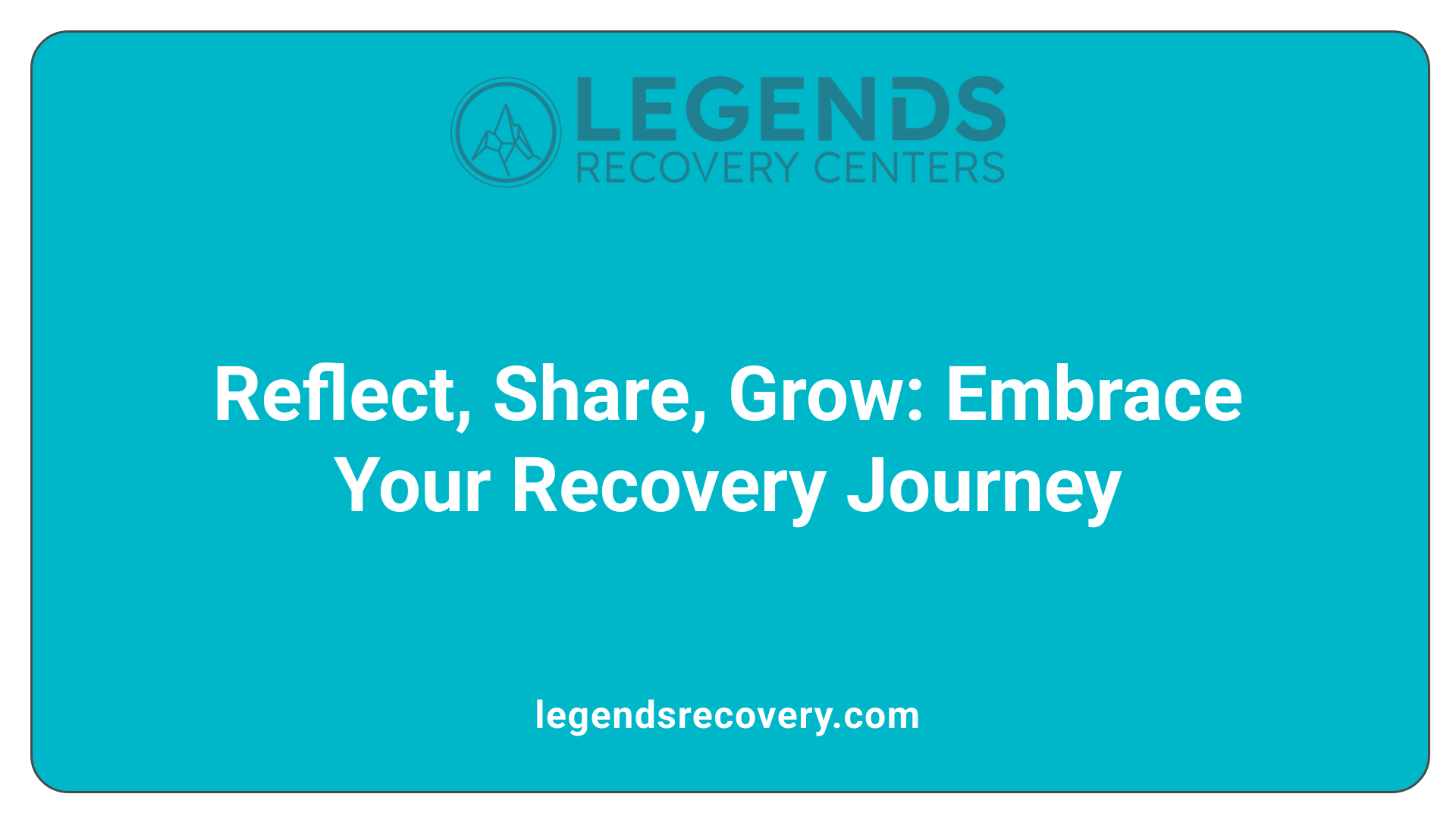
Reflection and sharing are vital tools for maintaining motivation and fostering growth during recovery. One effective method is journaling, which allows individuals to process their experiences, recognize progress, and articulate their thoughts and feelings. Regular journaling provides a safe space to explore challenges, celebrate successes, and set future intentions.
Sharing stories with trusted friends, support groups, or through community platforms can bring emotional relief and reinforce a sense of belonging. When people share their journeys authentically—highlighting key milestones, struggles, and lessons learned—they help inspire others and reduce stigma associated with addiction.
Refining these stories with honesty and vulnerability not only deepens self-awareness but also builds authentic connections. This openness encourages others to seek support and reminds individuals of their resilience.
In support groups like AA or NA, milestone celebrations often include sharing personal stories that reflect on the journey so far. These shared experiences can serve as powerful motivators, reminding everyone of their collective strength.
Looking ahead, reflection helps in setting realistic and meaningful future goals. By acknowledging past achievements and lessons, individuals can identify areas for personal growth and develop plans to continue their recovery path.
Approaching reflection and sharing with a genuine and considerate mindset fosters healing, promotes community, and provides an ongoing source of motivation. Ultimately, these practices empower individuals to take pride in their progress and inspire others along the way.
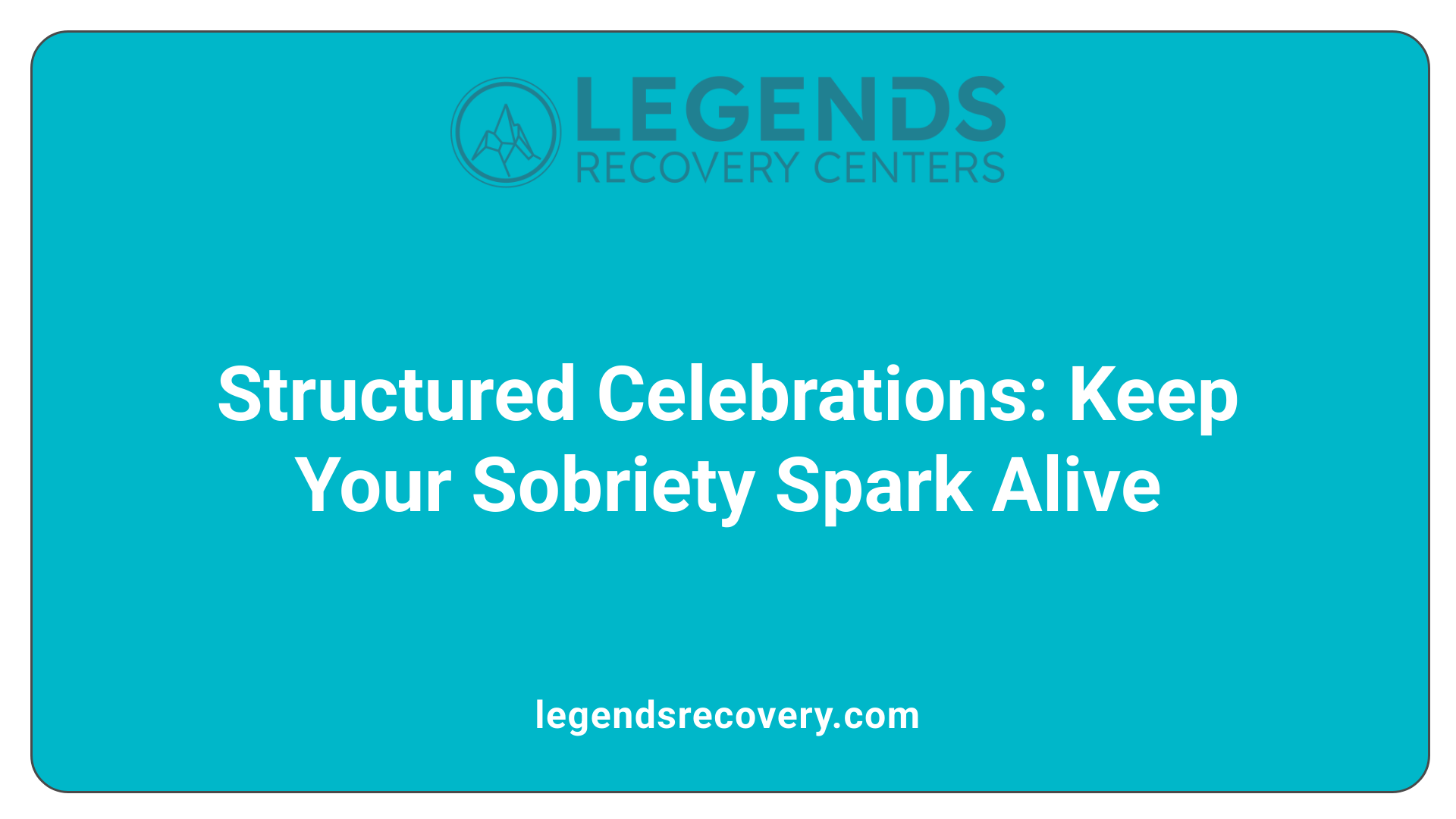
Recognizing recovery milestones is vital for sustaining motivation and fostering a positive outlook. The most effective approaches involve embracing substance-free activities that bring genuine joy and a sense of accomplishment. For example, hosting sober gatherings or outings with friends can celebrate progress while reinforcing a support network.
Creating visual reminders, such as vision boards or milestone charts, helps individuals visualize their journey and future goals. These tools serve as constant sources of inspiration and affirmation of their resilience.
Reflection through gratitude journals or sharing success stories in support groups nurtures self-esteem and keeps the focus on personal growth. Such activities encourage mindfulness and reinforce positive behavior.
Community involvement, whether through volunteering or attending support meetings, offers encouragement and accountability. These shared experiences remind individuals that they are not alone and that their efforts are valued.
Practicing self-care strategies, like meditation, spa days, or engaging in hobbies, helps maintain emotional equilibrium and reduces stress levels that might lead to relapse.
Setting structured, realistic goals and creating meaningful traditions—such as annual celebrations, special gifts, or commemorative acts—further embeds milestones as essential, safe markers of progress. These thoughtfully planned activities help reduce high-risk situations and foster a sense of achievement and continuity.
Celebrating milestones over the long term plays a vital role in maintaining a sober lifestyle. It helps individuals stay motivated by highlighting their progress and resilience over years, not just months. Major anniversaries like a 5- or 10-year sobriety mark serve as powerful reminders of their ability to overcome challenges and rebuild a stable life.
These celebrations also reinforce the ongoing commitment needed for long-lasting sobriety. Recognizing achievements provides a sense of legacy and personal growth, encouraging individuals to continue their journey with confidence. It’s an opportunity to reflect on improved relationships, health, and personal accomplishments.
Involving the community through volunteer work or support groups can deepen the sense of purpose. Creating lasting traditions or visual reminders, such as sobriety plaques or milestone photo albums, helps individuals consistently acknowledge their progress. These rituals foster a sense of belonging and motivate ongoing recovery efforts.
Ultimately, celebrating long-term recovery boosts self-esteem and inspires others in similar journeys. It reminds individuals of their strength and the positive impact of sobriety on their lives. Recognizing these achievements encourages continuous personal development and helps sustain motivation in the long run.
Celebrating milestones in recovery in healthy, substance-free ways is a powerful strategy to reinforce positive habits, boost confidence, and maintain motivation for lifelong sobriety. Whether it’s marking days, months, or years, each achievement provides valuable opportunities for reflection, connection, and growth. Developing personalized traditions, engaging in fulfilling activities, and sharing successes with loved ones contribute to a supportive recovery environment. Remember that every small step counts, and recognizing progress—no matter how big or small—strengthens resilience and encourages continued dedication to a healthier, substance-free life. By embracing celebration as a vital part of the recovery process, individuals can build a resilient foundation for sustained well-being and happiness.